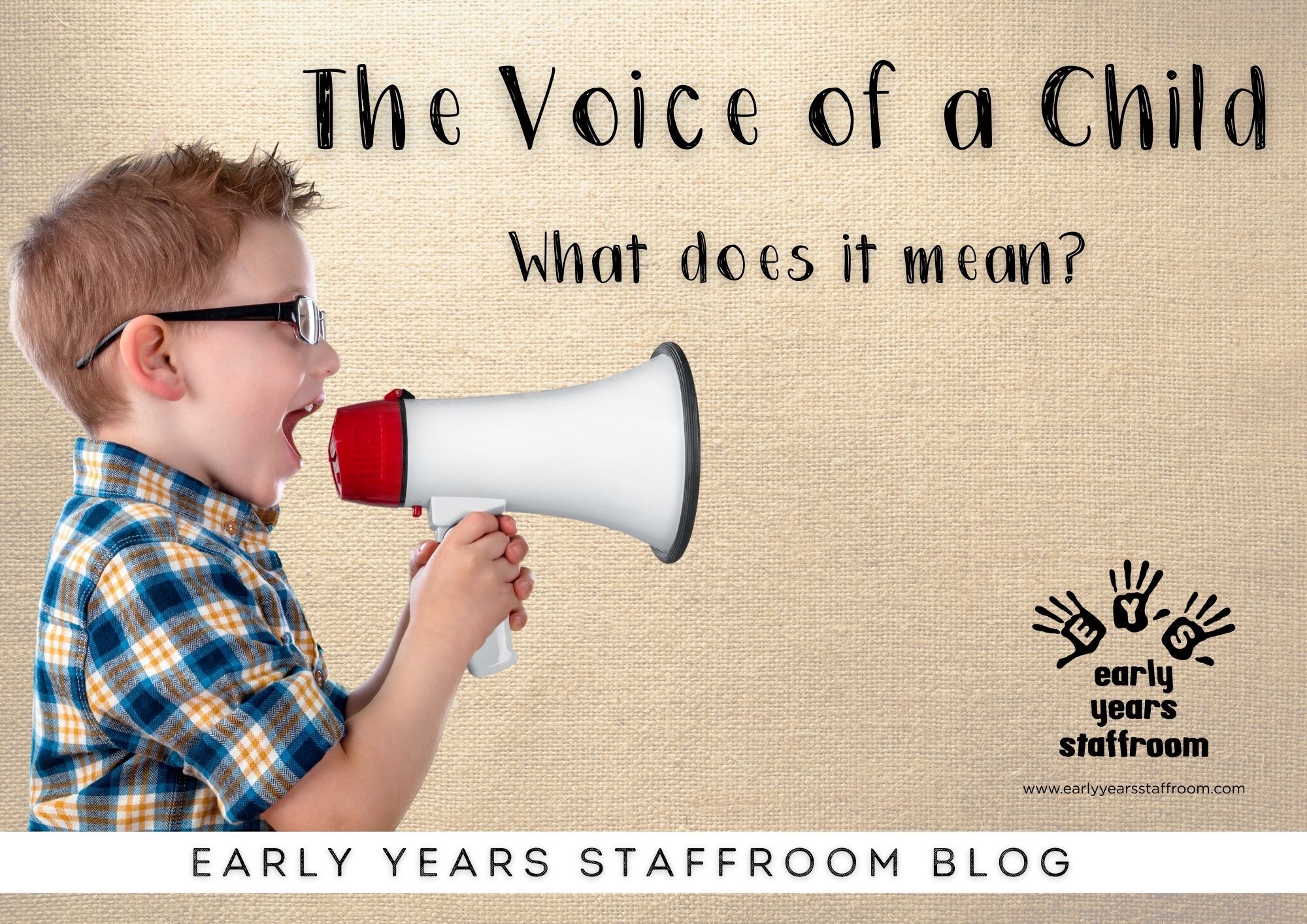What does it mean?
It means to express how we go about creating meaningful engagement with our early years children. It means to understand a child and give them the chance to speak.
So why is it important in EYFS?
The voice of a child is so fundamental as it helps the child to feel, valued, supported and listened to. When a child feels valued, it helps them to grow up happy, experiencing life. To feel supported means to feel safe and secure, if a child feels this in an early years setting they are going to feel more at ease and be able to relax, be themselves, feel confident asking questions and asking for help. Actively listening will make the child feel important, that what they say is significant, which will then strengthen their bond with you and others who listen.
Therefore, these factors help the children to develop a sense of belonging and therefore helps to build their confidence to share and voice their opinions which builds skills for life. Not listening and engaging with a child’s opinion from as early as in the Early Years Foundation Stage (EYFS) could impact them for the rest of their lives.
What is our role as a professional?
As a professional, our role is to build a picture and a portfolio of the voice of a child as an individual through direct engagement, observations and discussions with parents/carers or family members.
Through direct engagement and observations, you will be able to listen closely to the voice of a child. For example,
- You will be able to listen during their play – you will be able to listen to their imagination evolving, how they interact with other children during different scenarios.
- You will be able to listen to their conversations – with other children and adults in the setting as well as how they interact with their parent and carers, listening to how they respond.
- You will be able to listen to their ideas – shared in small and larger groups as well as their imaginations and opinions grow.How do I encourage the voice of a child? As mentioned previously children who do not feel valued, supported or listened to may struggle to voice their opinions and speak freely. Therefore, it is important that when a child speaks you stop what you are doing and listen carefully to what they are saying, making eye contact at the same time so the child knows that you are listening and engaging with them. When a child speaks let them speak freely, respecting what they say, listening to their opinions and ideas and not judging what they are saying as this can break their confidence.
We have designed a poster to promote and visualise the importance of listening to and valuing children’s voices, opinions, and ideas within the educational setting. This type of poster can be used in early years classrooms, nurseries, preschools, kindergartens, and early elementary classrooms as part of a broader approach to child-centred education.
How do I help a child share their voice?
Some children through no fault of their own may find it harder to share their voice, therefore different techniques need to be used in order to encourage and build confidence for these children.
- Reading together, sharing a story, talking about a story can help a child to share their own similar experiences linked to a story, encouraging them to build their confidence to talk to others.
- Using puppets can help a child to talk and share their ideas.
- Using sign language.
- Drawing pictures can encourage talk. We must remember as professionals, the voice of a child is a huge part of a child’s life; it helps them to grow into confident, happy and well-rounded children. We are here to support and make a child’s dream come true and through their voice we can help them to achieve this by supporting, valuing and listening to our children of today.











